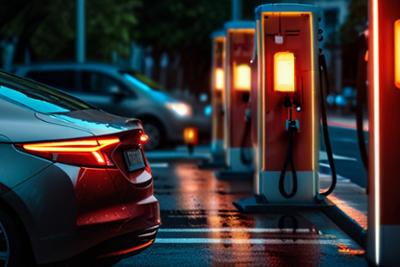

An electric vehicle charging network is a key priority for the sustainable mobility ecosystem

This network’s expansion through service stations presents a valuable opportunity to accelerate the process, which is a key Global Mobility Call objective.
The development of charging points for electrified vehicles is a key priority for companies working to promote sustainable mobility. These companies have been looking for ways to expand the network of connectivity services and have been developing the infrastructure in Spain.
One of the key topics being discussed at the Global Mobility Call, which will take place from 19 to 21 November at IFEMA MADRID, is the growing supply of electric car recharging points. This event, which is in its third year, will focus on the progress being made in both urban areas and on the roads.
At the two previous Global Mobility Call events, we gathered company opinions on this process that integrates the actions of public bodies, companies in this ecosystem and sectoral associations with a common objective to promote electric vehicles and sustainable mobility in general.
A network of collaborative partnerships to enhance value chains
David Martínez Fernández, CEO of Iberdrola Energía España, stated that it is essential to collaborate with the relevant authorities to facilitate the expansion of the public charging network for electric vehicles. This will ensure that the necessary permits and licences are in place to encourage the wider adoption of electric cars in Spain.
The Spanish electricity system has the capacity to meet the challenge posed by plans for an electric car charging network, which would imply a 1% increase in energy demand annually (with an estimated one million units in the country). However, over the next decade, this could increase by up to 10%. "It is a challenge. We must establish the conditions to facilitate investment in networks, digitisation and network extension.”
This development involves forming alliances with companies in other sectors and offering a comprehensive solution to meet the our customers’ diverse needs. For instance, in domestic charging in residential buildings and shopping centres.
Furthermore, we are working with companies to recharge their fleets in private car parks, with the heavy transport sector which already has 500 points for buses, and to insist on an offer for the main roads in the public network which has more than 5,500 points in operation. "You will be required to work with all customers in different sectors and to provide solutions that are cost-efficient.”
At GMC 2023, Cepsa's Director of Mobility and New Businesses, Pierre-Yves Sachet, outlined the company's vision for transforming the mobility energy supply. This involves replacing fossil fuels with electric energy and, soon, with hydrogen. The goal is to create a “multi-energy panorama for vehicles at service stations.”
The process involves leveraging the energy company's existing network of petrol stations to integrate new energy sources for electric vehicles, enabling them to function as electric filling stations. This initiative is already being explored with other electricity companies for Cepsa's network in Spain.
Overview of the development of recharging points in Spain
The charging infrastructure development is a key driver of electrified vehicle sales, providing greater confidence to users of these vehicles in their journeys in cities and on Spain's roads.
The 2023 Electromobility Barometer from ANFAC reveals that 11,173 new charging points were registered last year, representing the highest annual growth in this development since it was first recorded in 2019. Spain has reached a total of 29,301 public access charging stations for electric vehicles.
The association has identified 7,728 public access charging points that are currently out of service (21% of the total infrastructure). This is due to poor condition, lack of functionality or lack of connection to the electricity distribution network. The organisation estimates that if these points were operational, there would be 37,029 public access charging points in Spain.
In terms of electrified vehicle sales, 124,628 units were sold in Spain in 2023, representing a 47% increase compared to 2022 and accounting for 11% of the market. This highlights the automotive sector’s potential in favour of sustainable mobility.





